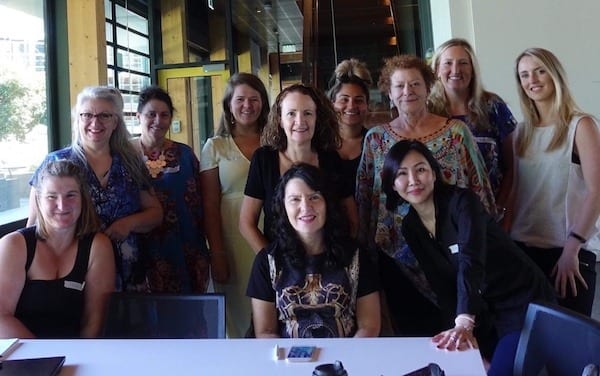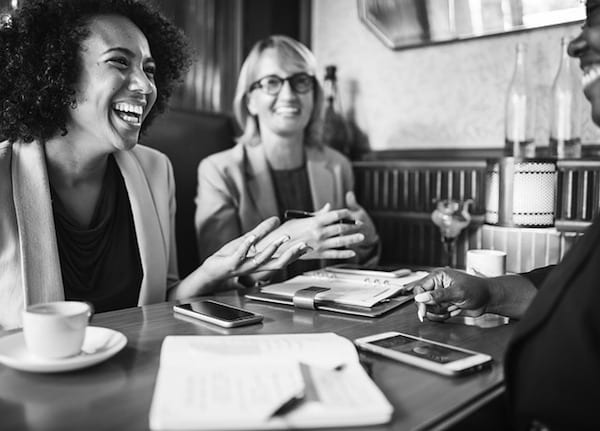Already up against signifiant financial hardship compared to men, she doesn’t want to see women emerging tech become a double-disadvantage for women.
She explains how she get involved and excited in learning about cryptocurrencies, and why she hopes more women follow.
____
Most people in Australia have heard of Bitcoin, although not many invest in it yet.
This is probably because there are wildly divergent views about its safety and value. Detractors regard Bitcoin as a scam, a bubble and a haven for gamblers. Yet supporters can seem to be evangelistic, nerdy tech-heads with their own language, symbols and cult-like activities.
There may be a little truth in both characterizations, and it’s certainly true that Bitcoin can be confusing. For a start, even calling it “Bitcoin” is a misnomer, since Bitcoin itself is just one of thousands of coins and tokens collectively known as cryptocurrency. Sure, Bitcoin is the original coin and the one with the highest present value, but it’s still just one of many ways to trade virtual currencies.
In a nutshell, cryptocurrencies use what’s known as the blockchain to enable computer-based transactions to occur in a far more efficient way than current systems allow. It would take many paragraphs to describe how it all works, but there are great resources around for finding out about cryptocurrency and blockchain, such as here and here and here.
There’s much to learn, and the bottom line is that it’s a very new technology and, as such, is volatile and fast-moving. Yet its very unpredictability makes it a great way for those prepared to study and focus to make serious money.
My own foray into cryptocurrency began last November, when I first heard about cryptocurrency and joined a number of online crypto groups to learn more. Shortly after that, I bought a relatively small amount of cryptocurrency. I’ve found trading it to be fascinating and eye-opening, and although still very much a beginner, I’m slowly gaining knowledge and confidence.

For example, I now know what FOMO and FUD is and why some people HODL while others don’t. I’ve kept well away from the MLM scams and haven’t been taken in by talk of lambos and whales and mooning. I know investors should start small, only invest what they can afford to lose, do their own research, keep a cool head, take profits, and pay close attention to security. I’ve completed one short course in crypto trading and intend to explore this more, and I’m now part of several crypto communities, including a crypto women’s group who meet in person as well as online.
Despite the upside, one of the sad things about cryptocurrency is the dearth of women. Best estimates are that only five percent of those currently investing are female, and my experiences in online forums would confirm this statistic.
This is a great shame, because when you add the historic financial disadvantages women have faced to their lack of current involvement in these new technologies, female inequality becomes further entrenched.
Women worldwide still do most of the productive work yet own the smallest slice of the financial pie. They own the fewest assets, get paid (on average) 17 percent less than men, and have less in superannuation. The fastest growing rates of homelessness are among older women, and they’re more often disadvantaged in divorce, are more often subjected to financial abuse, and are more likely to miss out financially when they escape or cope with domestic violence.
Cathie Nederveen sees this firsthand. In her work as the Service Coordinator at Mitcham Family Violence Services, she told me of the struggle women have to get ahead: “Court and legal costs can impact greatly on women’s finances, especially when they’re constantly taken back to Family Court for minor transgressions. Indeed, this type of financial strain deserves its own category of family violence: ‘systems abuse’. I often hear tales from women of men who financially abuse women long after the relationship has ended. Many men find it difficult to move on, and a sort of ‘pay back’ mentality can evolve.”
Jozica Kutin also worries about women’s financial disadvantage. She’s a researcher at RMIT University in Melbourne and last year, she and her colleagues surveyed more than 2,000 women to find out about their ideas on money management. Their findings seem to perfectly explain many of the reasons women don’t invest in cryptocurrency, as well as why they are often less financially savvy overall. Their findings show how women are often socialized to see themselves as focused on family concerns rather than financial ones; how they tend to be conditioned to lack confidence in learning new skills; and how they’re often taught to defer to male partners on finance-related issues.
I was able to overcome the negative conditioning most women have and jump into cryptocurrency both because I’m reasonably confident online (which meant I knew how to find places I could learn), and because as a woman with a career in advanced driver training, I don’t lack confidence in male-dominated arenas. Many women in crypto seem similar: they’re either confident with technology or confident in traditionally male spaces, or both.
Craig Cobb also wants to encourage more women into crypto. Under the name Trader Cobb, Craig runs investment courses, oversees online communities, and produces a hugely popular podcast. I first saw Craig speak at a crypto meet-up last December and was particularly taken by his comments about women.
In front of a crowd of around 500 men and 10 women, Craig openly stated – to a collective gasp – that he thought women made better traders than men.
And when I spoke to him this week, he confirmed that view: “I know many women doing fantastically well in crypto but it is currently mainly men in this market” he told me. “Women tend to make better traders than men as they admit mistakes quicker, leave emotion at the door more often and don’t feel the need to brag. These attributes make trading and investing a worthy endeavour for women.”
I hope Craig’s efforts to change the gender balance in crypto are successful. Because if women can push past their fears, cryptocurrency is an exciting new world. There’s the upside of potential earnings, of course, but equally big gains to be made in finding confidence, skills, and new friends.
Crypto should be 50 percent women. Well, why not? Why should the guys get all the gains and all the glory? It’s 2018, and women – partnered or not – can and should control their own financial futures.
It’s well past time more of us did so.


